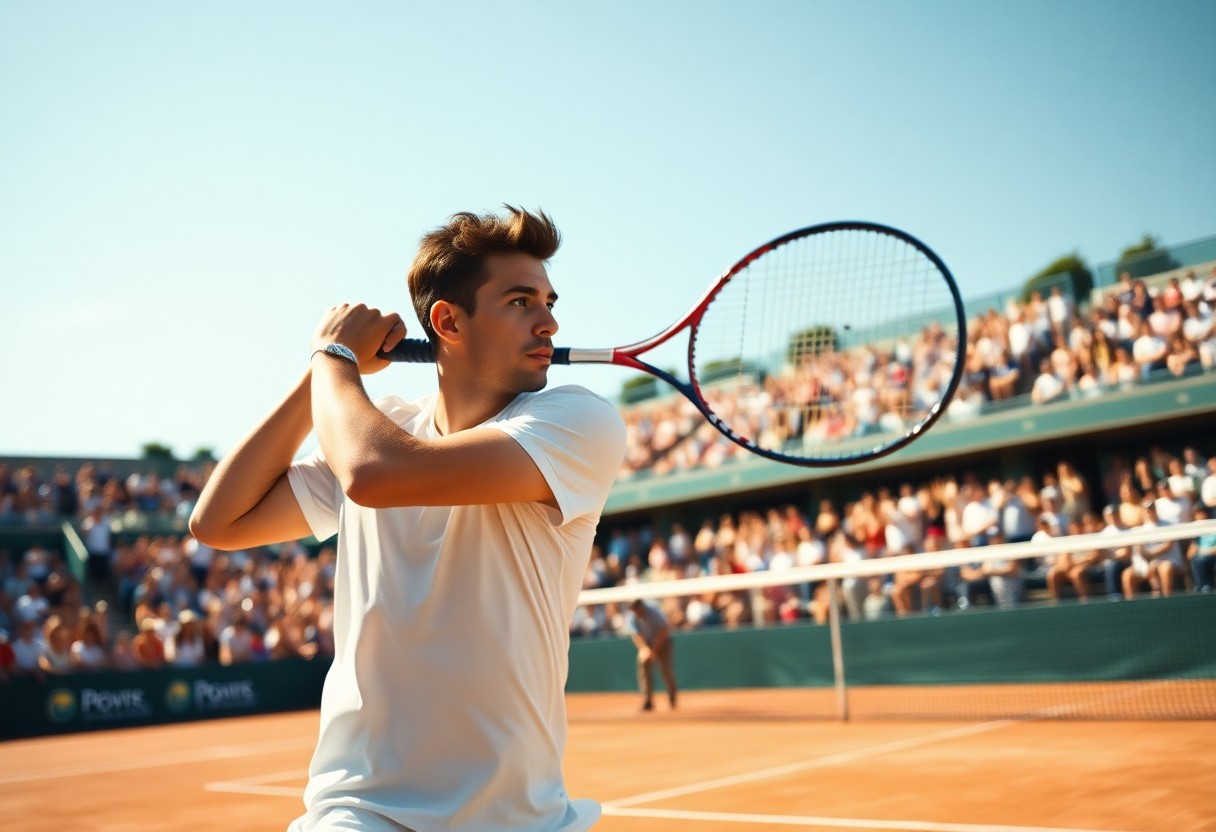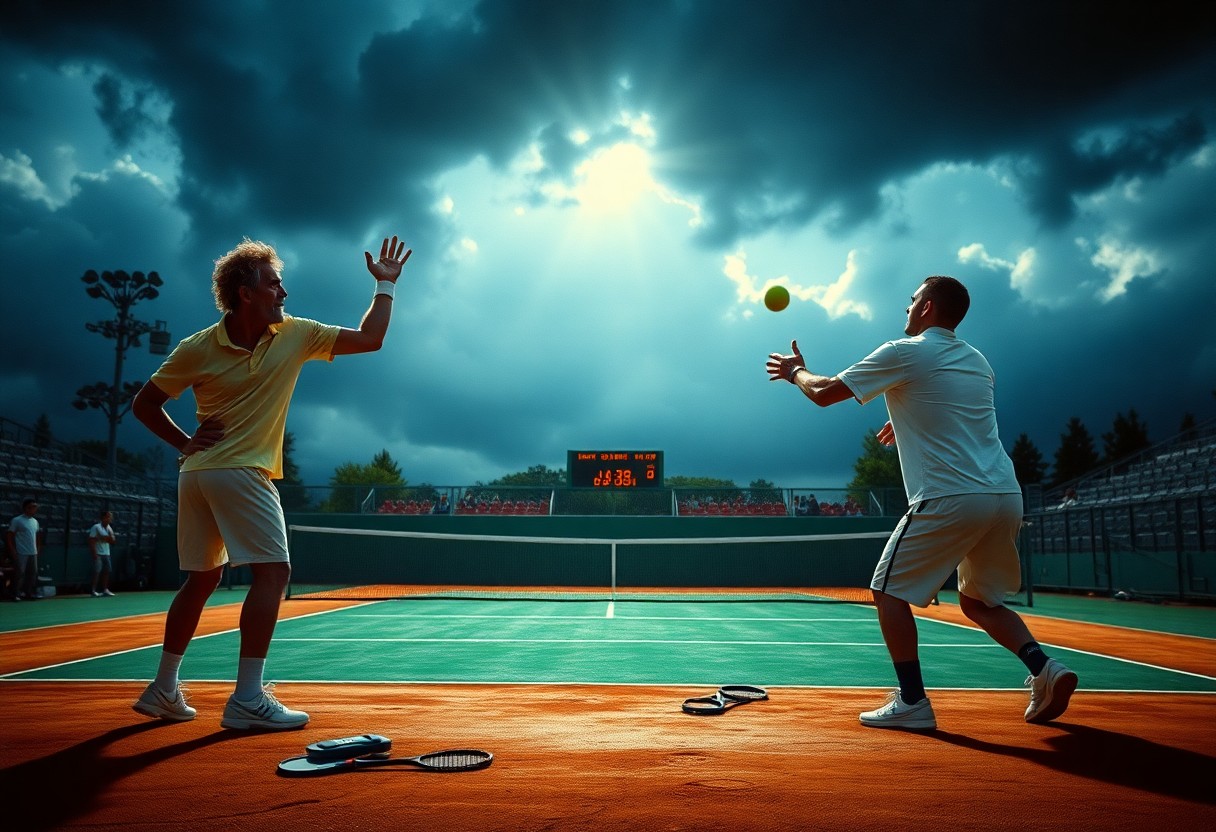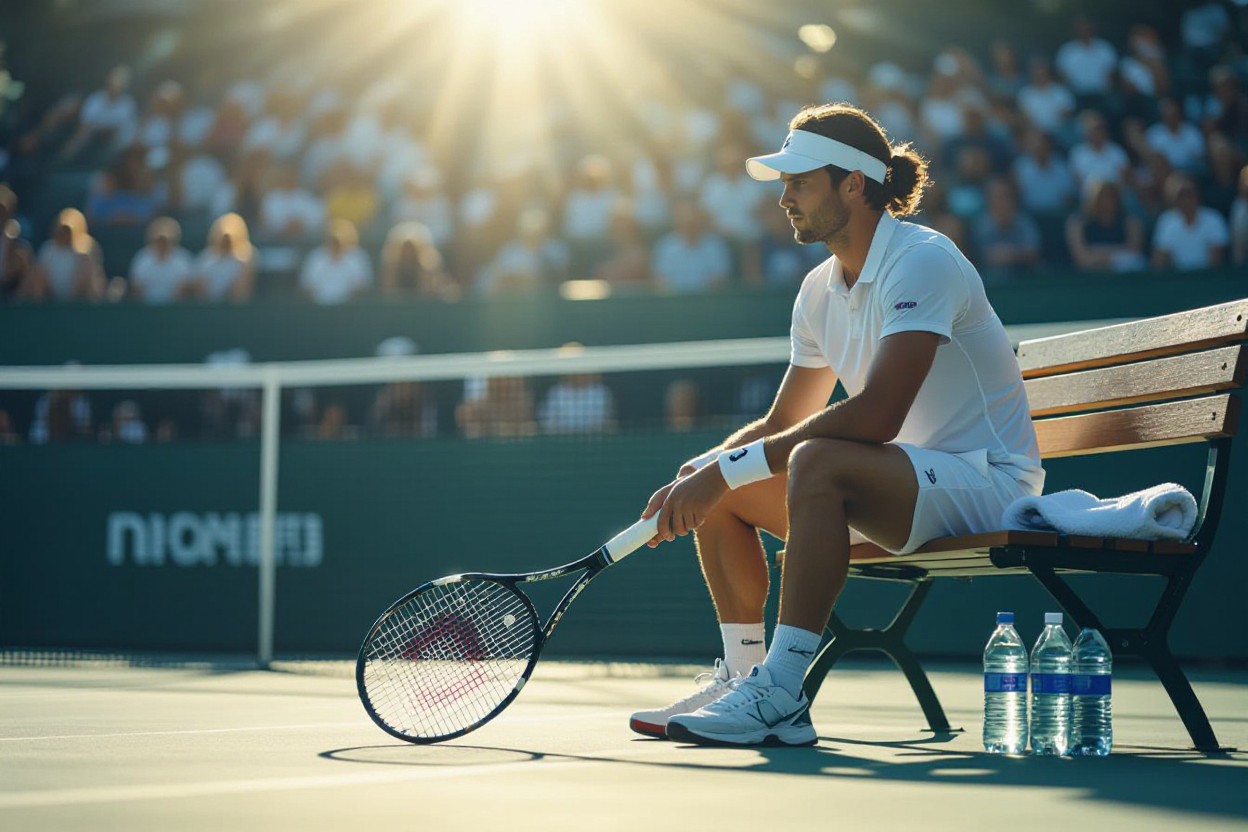There’s a distinct line that divides the elite tennis players from the rest, and it often lies in the mental game. While technical skills and physical conditioning are undeniably important, the ability to manage your thoughts, emotions, and focus can significantly impact your performance on the court. In this post, you’ll discover the key mental strategies that can elevate your game, helping you to develop the resilience and mindset needed to compete at higher levels. Prepare to unlock your full potential by mastering the mental side of tennis!
The Importance of Mental Toughness
Before stepping onto the court, it’s important to recognize that mental toughness is not just an advantage; it’s often the defining factor between an elite player and the rest. Developing resilience, focus, and emotional control allows you to navigate high-pressure situations and maintain your performance, regardless of the external factors affecting the match. By honing your mental fortitude, you position yourself for success both on and off the court.
Defining Mental Toughness
Defining mental toughness encompasses your ability to withstand pressure, rebound from setbacks, and maintain a positive mindset during challenging times. It involves perseverance, focus, and resilience. Essentially, mental toughness is your inner strength that empowers you to push through difficult matches and stay committed to your goals. Understanding this concept will transform how you approach your training and game strategy.
Psychological Benefits in Tennis
Psychological benefits in tennis extend far beyond simply winning or losing; they significantly enhance your overall performance and emotional well-being. Establishing a strong mental game helps you manage anxiety, improves your concentration, and fosters perseverance. These benefits not only lead to better results on the court but also contribute positively to your personal growth and self-confidence in various aspects of your life.
Mental toughness plays a substantial role in the psychological benefits you experience while playing tennis. When you are mentally resilient, you are more equipped to handle stressful situations, such as crucial points during a match. This ability to focus and remain composed can drastically alter the outcome of a game. Additionally, a strong mental framework allows you to embrace challenges and setbacks as opportunities for growth, further enhancing your skills and passion for the sport.
The Mindset of Elite Players
There’s a unique mindset that characterizes elite tennis players, setting them apart from the competition. This mentality encompasses resilience, focus, and an unwavering belief in their ability to improve. You will find that these players thrive under pressure, viewing challenges as opportunities to grow rather than obstacles to avoid. By cultivating this mindset, you can elevate your game and unlock your full potential on the court.
Growth Mindset vs. Fixed Mindset
At the core of elite players’ success lies the contrast between growth and fixed mindsets. While a fixed mindset assumes abilities are static and unchangeable, a growth mindset embraces the idea that you can develop your skills and intellect through hard work and dedication. Adopting a growth mindset not only enhances your performance but also empowers you to learn from setbacks and continuously strive for improvement.
Strategies Elite Players Use
Mindset plays an integral role in the strategies used by elite players to maintain their edge. These athletes often engage in visualization techniques, mentally rehearsing their matches to build confidence and prepare for various scenarios. Additionally, they rely on positive self-talk to stay focused and resilient during challenging moments, helping you to combat negative thoughts and boost your performance.
A central strategy employed by elite players is routine, establishing a consistent pre-match and in-match protocol that helps them remain centered and mindful. By incorporating elements such as breathing exercises, meditation, or affirmations into your routine, you can develop a mental framework that fosters peak performance and allows you to approach each match with clarity and purpose. Ultimately, these strategies align your mindset with your goals, propelling you toward success on the court.
Overcoming Challenges and Adversity
You will inevitably face challenges and adversity throughout your tennis journey. Embracing these moments as opportunities for growth can greatly enhance your mental game. The ability to navigate tough situations not only builds resilience but also distinguishes elite players from the rest. By cultivating a proactive mindset, you can turn obstacles into lessons that prepare you for future matches and enhance your overall performance.
Dealing with Pressure Situations
Dealing with pressure situations requires mental fortitude and focus. When the stakes are high, staying calm and confident can make all the difference. Developing techniques such as deep breathing, visualization, and positive self-talk can help you manage your nerves. By embracing the pressure rather than succumbing to it, you can transform tense moments into opportunities to shine on the court.
Recovery from Setbacks
On the path to excellence, setbacks are an unavoidable reality. Learning to recover effectively from these challenges is key to your long-term success. How you respond to losses, injuries, or performance slumps will significantly impact your growth and resilience.
Further, after a setback, it’s important to assess what went wrong and what you can improve. Instead of wallowing in disappointment, focus on actionable steps to regain your confidence. Set short-term goals, communicate with your coach, and analyze your performance critically. Cultivating a growth mindset will empower you to bounce back stronger, fostering resilience that separates elite players from the rest.
Visualization and Mental Imagery
Once again, harnessing the power of visualization and mental imagery can elevate your tennis game to new heights. By creating vivid mental pictures of successful performances, you prepare your mind for peak conditions on the court. This technique allows you to experience matches and strokes in your mind, building confidence and familiarity with different game scenarios while enhancing focus and relaxation during competition.
Techniques for Effective Visualization
Among the techniques you can use for effective visualization, start by finding a quiet space where you can close your eyes and confidently picture yourself executing your strokes perfectly. Incorporate all senses into your imagery—feel the racket in your hand, hear the ball hitting the strings, and even visualize the crowd’s reaction as you score an impressive point. Practice regularly to reinforce these mental images and make them a staple of your pre-match routine.
Real-world Examples from Top Players
Around the professional circuit, many elite players swear by the power of visualization. Notably, legends like Serena Williams and Novak Djokovic utilize this technique to mentally rehearse their matches, helping them maintain focus and composure during high-pressure situations. By integrating visualization into their training, they create a winning mindset that has contributed significantly to their success on the court.
Consequently, these athletes often mention visualizing specific plays or scenarios before their matches as a key aspect of their preparation. For instance, Djokovic vividly imagines executing his serves under pressure or envisioning winning crucial points, which prepares him mentally for real-life challenges. By adopting similar practices, you can develop the mental resilience needed to navigate the complexities of competitive tennis with confidence. Emulating these proven methods can enrich your training regimen and help you rise to the elite level of the sport.
The Role of Focus and Concentration
Unlike many sports, tennis demands that you remain intensely focused for every point. Your ability to concentrate sets apart the elite players from the rest. While physical skill is imperative, the mental aspect of focus allows you to execute your strategy, analyze your opponent, and adapt as the match progresses.
Maintaining Concentration During Matches
Above all, maintaining concentration during matches can be challenging, especially when distractions arise. You must develop practices that allow you to stay present and engaged, regardless of the score or atmosphere. Effective concentration will help you perform consistently, even when faced with pressure.
Techniques to Enhance Focus
Above all, there are several techniques you can employ to enhance your focus and maintain your concentration. Practices such as visualization, breathing exercises, and mental routines help to center your mind, allowing you to stay committed to the task at hand.
At the core, utilizing visualization techniques enables you to mentally rehearse your shots and strategies before stepping onto the court. This mental practice trains your brain to anticipate and respond effectively during matches. Breathing exercises, on the other hand, can calm your nerves and bring you back to the present moment, which is vital during high-pressure situations. Establishing a pre-serve or pre-shot routine serves as a reminder to refocus your mind, helping you to eliminate distractions and maintain a steady level of concentration throughout the match.
Building a Support System
Despite the individual nature of tennis, having a solid support system is crucial for your success. Surrounding yourself with the right people can significantly enhance your mental resilience, making it easier for you to face challenges on and off the court. A supportive network enables you to gain new perspectives and provides encouragement during tough times, ensuring you remain focused on your growth and performance.
Importance of Coaches and Mentors
The guidance you receive from coaches and mentors plays a vital role in your development as a tennis player. They not only help you refine your technical skills but also instill the mental fortitude required to compete at a higher level. With their experience, they can offer valuable insights into managing pressure and overcoming obstacles, helping you navigate the psychological landscape of the game.
Role of Peer Support in Mental Development
Above all, peer support becomes a powerful asset in your mental development. When you train and compete alongside fellow athletes, you create an environment where shared experiences and camaraderie thrive. This connection helps you build confidence and fosters a sense of belonging, while also allowing you to learn from one another’s successes and setbacks.
At times, the importance of peer support can be underestimated, yet it forms a fundamental aspect of your mental landscape. Engaging with teammates provides you with a space to share strategies for coping with pressure and enhancing performance. By encouraging one another, you cultivate a winning mentality that elevates not only your individual game but also the entire team’s morale. This network of encouraging peers helps to normalize the ups and downs of competitive tennis, reminding you that everyone experiences challenges, thus making your journey less isolating and more empowering.
Final Words
So, as you strive to elevate your tennis game, embracing the mental aspect is important to distinguish yourself from the competition. Developing your focus, resilience, and emotional control will empower you to perform at your peak, especially under pressure. By integrating mental training into your practice routine, you will not only enhance your skills but also cultivate the mindset of an elite player. Your journey toward mastery doesn’t end on the court; it begins within you, shaping your approach to every match and challenge you face.




